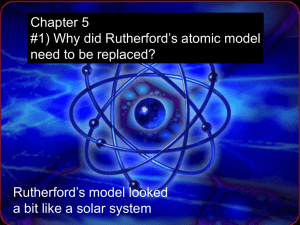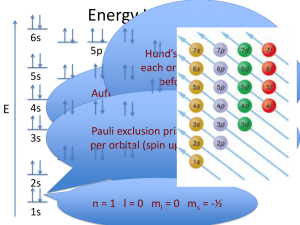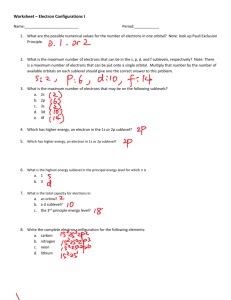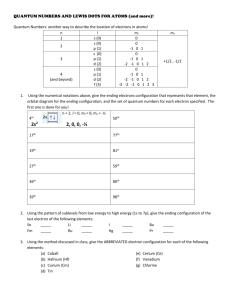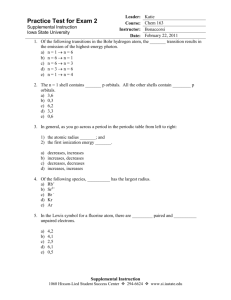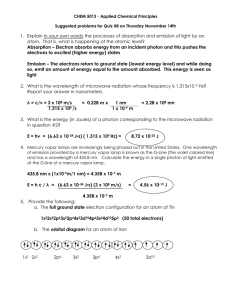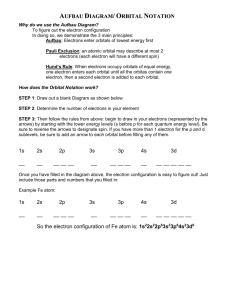5-5 Orbital Diagrams
advertisement
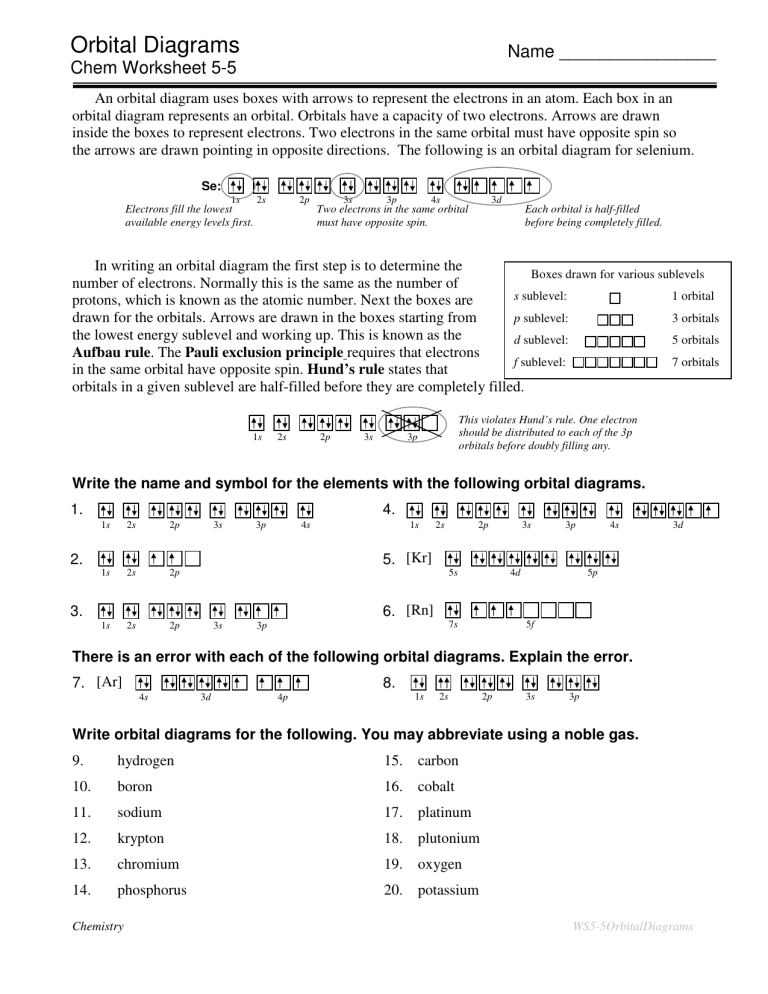
Orbital Diagrams Name ________________ Chem Worksheet 5-5 An orbital diagram uses boxes with arrows to represent the electrons in an atom. Each box in an orbital diagram represents an orbital. Orbitals have a capacity of two electrons. Arrows are drawn inside the boxes to represent electrons. Two electrons in the same orbital must have opposite spin so the arrows are drawn pointing in opposite directions. The following is an orbital diagram for selenium. Se: 1s Electrons fill the lowest available energy levels first. 2s 2p 3s 3p 4s 3d Two electrons in the same orbital must have opposite spin. Each orbital is half-filled before being completely filled. In writing an orbital diagram the first step is to determine the Boxes drawn for various sublevels number of electrons. Normally this is the same as the number of s sublevel: 1 orbital protons, which is known as the atomic number. Next the boxes are p sublevel: 3 orbitals drawn for the orbitals. Arrows are drawn in the boxes starting from the lowest energy sublevel and working up. This is known as the d sublevel: 5 orbitals Aufbau rule. The Pauli exclusion principle requires that electrons f sublevel: 7 orbitals in the same orbital have opposite spin. Hund’s rule states that orbitals in a given sublevel are half-filled before they are completely filled. 1s 2s 2p 3s This violates Hund’s rule. One electron should be distributed to each of the 3p orbitals before doubly filling any. 3p Write the name and symbol for the elements with the following orbital diagrams. 1. 2. 3. 1s 2s 2p 1s 2s 2p 1s 2s 2p 3s 3p 4s 4. 1s 2s 5. [Kr] 3s 5s 6. [Rn] 3p 2p 3s 3p 4d 7s 4s 3d 5p 5f There is an error with each of the following orbital diagrams. Explain the error. 7. [Ar] 4s 3d 4p 8. 1s 2s 2p 3s 3p Write orbital diagrams for the following. You may abbreviate using a noble gas. 9. hydrogen 15. carbon 10. boron 16. cobalt 11. sodium 17. platinum 12. krypton 18. plutonium 13. chromium 19. oxygen 14. phosphorus 20. potassium Chemistry WS5-5OrbitalDiagrams
